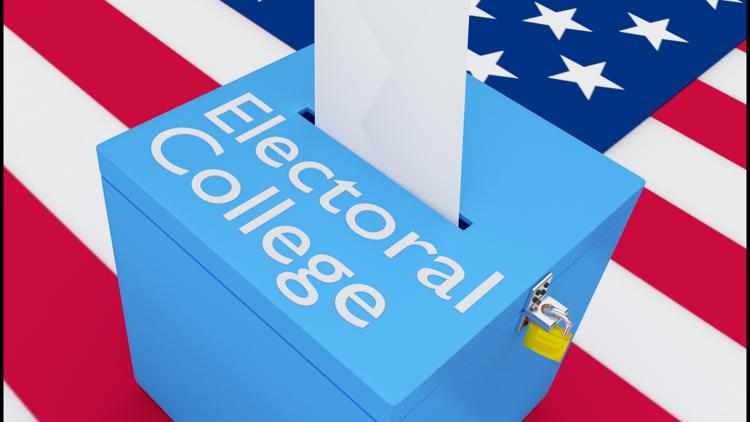USA, — Everywhere you look, you'll find people talking about the fight to 270. But what does that even mean?
We're here to break it down for you.
Let's get one thing straight: the Electoral College is not a place. It's a process.
The Electoral College was established in the Constitution as a compromise between the election of the president by a vote in Congress and the election of the president by a popular vote, according to the National Archives.
It includes a selection of electors, a meeting of those electors who cast votes for the president and vice president and a counting of those electors' votes by Congress.
Other US elections are elected directly by popular vote, but the president and vice president is chosen through the Electoral College process, according to the USA government website.
Each state has as many electors as it has members of Congress. The number of votes doled out to each state changes frequently. The most recent change was after the 2020 census, where seven states lost one electoral vote each, while six states gained.
All in all, the total number of electors is 538. A candidate needs the vote of at least 270 electors, more than half, to win the election.
So, after you cast your ballot, it goes to a statewide tally. In 48 states and Washinton, D.C., the winner gets all the electoral votes for that state, according the USA government website. Maine and Nebraska assign their electors using a proportional system.
The candidate that gets the vote of 270 electors wins the presidential election.
A projected winner is announced in November, but the actual Electoral College vote happens in mid-December.
The Constitution does not require electors to vote for the candidate selected by their state's popular vote. However, some states do.
There are cases where a candidate loses the popular vote but wins the Electoral College. The most recent example was in 2016 when Former President Donald Trump lost the popular vote but won 270 electoral votes.
If no candidate wins the majority of electoral votes, then the vote goes to the House of Representatives. Though, this hasn't happened since the 1800s.



